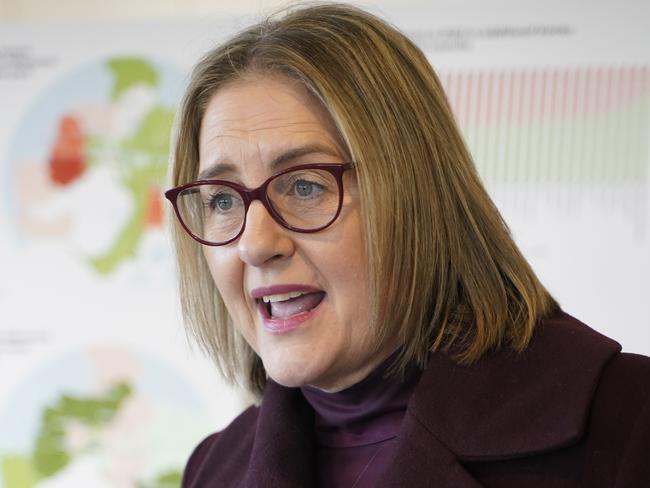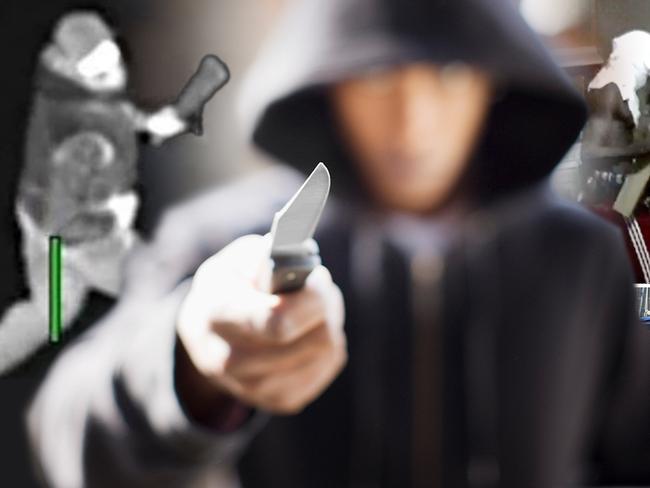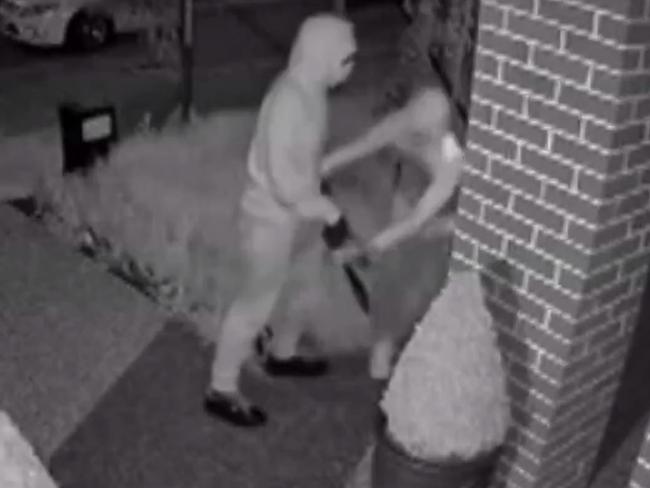Youth crime reforms will give the opposition a platform on which to relentlessly campaign
The Allan government is introducing its long-anticipated suite of reforms to the youth justice system and if it bungles this it could prove costly at the 2026 election.
Opinion
Don't miss out on the headlines from Opinion. Followed categories will be added to My News.
They say those that fail to learn from history are doomed to repeat it.
When it comes to raising the age of criminal responsibility there are political lessons to be learnt by looking north.
On Tuesday the Allan state government will introduce its long-anticipated suite of reforms to the youth justice system.
The most controversial aspect will be raising the age of criminal responsibility from 10 to 12 in the middle of a youth crime crisis.

It means children younger than 12 will no longer be able to be arrested, charged or jailed.
The government has committed to going a step further by 2027 and raising the age again to 14, with the exception of some crimes, such as homicide.
That will happen only if there is a substantial overhaul of the youth justice system and proper programs and systems are in place to make it workable.
Last August the Northern Territory government became the first in Australia to raise the age. It promised to do so when the right programs and services were in place to deal with the reform.

However, there has been widespread recognition in the territory, including among government insiders, that those systems were not ready.
It has consequently become a significant political problem.
Indeed, ahead of the NT’s August election, crime has been identified as the single biggest issue for voters.
Some Labor figures believe it will be the issue that costs NT Labor the election.
Youth crime is a significant element of that.
They say youth crime across the territory is out of control.
Kids are breaking into shops to steal alcohol and breaking into homes to steal keys and then cars.
Much of the crime is petty and disorganised, though some is much more serious violence by very young kids who can no longer be called offenders.
The NT opposition, led by the Country Liberal Party’s Lia Finocchiaro, has promised to take the age of criminal responsibility back to 10.
She’s also vowed to reinstate the use of spit hoods in youth detention centres.
The tough-on-crime approach seems to be working: latest polling has her party leading Labor 54-46 on a two-party preferred basis.
Labor has managed to claw back ground by also promising to take a tougher approach to crime and anti-social behaviour, including announcing a youth curfew for Alice Springs following riots in March, and promising to hire an extra 200 police.
Given the NT experience, the Allan government would do well to adopt a slow and methodical approach on such a significant reform.
Because youth crime could again shape as a key issue at the 2026 election.
If it bungles this reform, it might not get as lucky as it did in 2018 when the issue failed to capture the electorate’s attention.

Which might have made John Pesutto gun shy at the thought of waging war on the issue.
He was shadow attorney-general in 2018 when the opposition put law and order and youth crime front and centre of its election campaign.
It was an unmitigated disaster.
A post-election review by the Liberal Party found just 6 per cent of voters said the issue influenced their vote.
“Absent ‘perceived proximity of the threat’ to the voter it did not drive much actual voting behaviour because ‘soft voters’ didn’t feel unsafe and were focused on other matters,” the review found.
“While they want the justice system to work better to reduce crime it was a relatively unimportant ‘vote driver’ compared to others.”
Pesutto lost his seat in that election, and regained it with a slim 1.7 per cent margin.
The Teal-minded voters of Hawthorn will be largely in favour of raising the age.
The Liberal Party’s base will expect him to crack down on youth crime. But will such a stance attract softer voters to the Liberals, or deter them?
There may be sound ideological reasons to raise the age.
They include arguments that medical evidence shows the current age is inconsistent with research on brain development.
It is also out of step with the minimum age of criminal responsibility in other countries, and introduces children to the criminal justice system at a formative time, setting them up for lives of crime.
However, ideology rarely lives up to political reality.
Crime data show that youth crime is indeed surging out of control.
Raising the age will artificially fix the problem – on paper – because crime rates will inevitably drop on account of the new definition.
But the reforms will give the opposition a platform on which to relentlessly campaign, tapping into the politics of fear.
The reforms could well be a hard sell for the government.
Especially given there are already mechanisms for the justice system to consider the emotional and developmental maturity of young offenders.
The doli incapax rule – which dictates the presumption that a child aged 10 to 14 is incapable of criminal intent – can already be used by youths.
It can be rebutted only if a prosecution can prove beyond reasonable doubt that the accused knew their actions were seriously morally wrong.
Critics say the application of the rule is inconsistent and no substitute for formally raising the age.
Which is all well and good, so the government will persist with its longstanding commitment to lift the age of criminal responsibility.
It does, however, loom as a political minefield.




